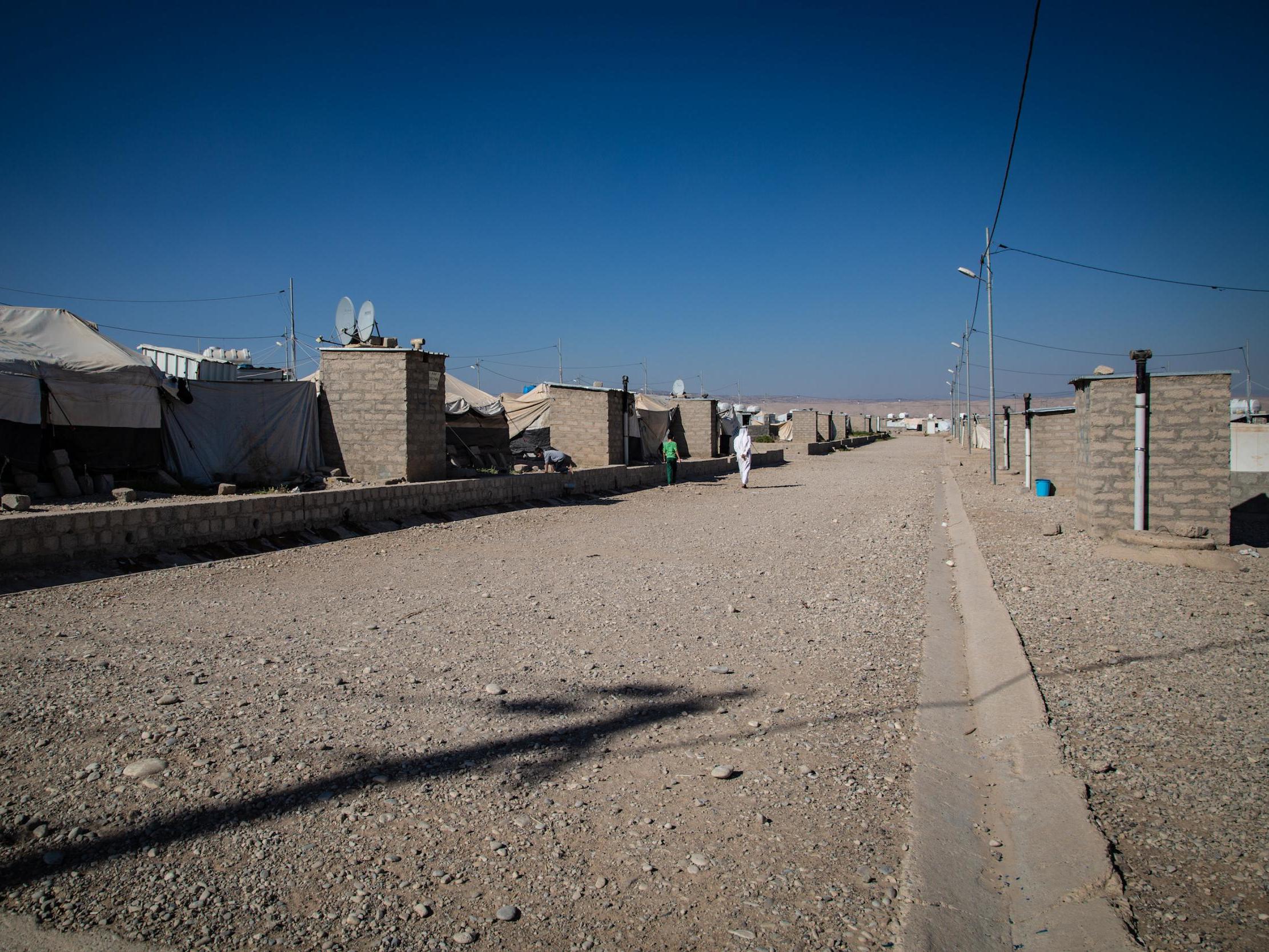How Iraqi children are learning to live again, after years under the Isis regime
Their dreams once shattered by war, Bel Trew meets children at a displaced persons camp in Iraq who are coming back to life with help from War Child
The exact moment that Eman, 13, from Mosul in Iraq, decided she wanted to become a lawyer was when she watched an airstrike obliterate her young neighbour, a new Isis recruit.
The bright law enthusiast spoke as she sat in a dusty yard of a children’s activity centre in Gamawa displacement camp, near Duhok. There she has been living in a tent with her family since they fled the Mosul offensive in 2016 after living under Isis’s brutal regime for several years.
As we talked about her hopes and dreams, the young girl slipped seamlessly from her favourite playground games to horrific memories of watching men be thrown off buildings by jihadi executioners.
She answers the simple question of what she wants to be when she grows up with the story of the 15-year-boy who lived across the street. She says he was brutally punished, jailed and brainwashed by Isis for selling cigarettes: an act forbidden by the terror group.

She explains that if he had a lawyer to protect him and argue his case, he might never have been detained and recruited by Isis and so never targeted by an airstrike.
“I believe he was a victim of injustice. [His death] could have been prevented,” she says, with astonishing maturity.
“That moment I knew I wanted to be a lawyer and to achieve the justice for my country because there are too many people like him.”
But until recently, Eman believed that goal was just an unlikely dream. When she first arrived at Gamawa she felt she had no future: she could not stop crying or lashing out aggressively.
Her words echo at least a dozen other children in the same camp, home to some 100 families displaced from the Mosul offensive. They talk of waking up screaming in their sleep, being too afraid to play and being scared of the dark. Case workers say wetting the bed and violent outbursts were also common.

But parents and children say the youth in the camp have made huge progress since completing two years of special psychosocial support programmes run by the charity War Child.
War Child employees fear that emotional support for displaced children and their parents is not considered part of emergency response to conflict, that usually stretches as far as shelter, food and water. But without it, there are spiralling consequences, including family bonds being damaged and impacting performance at school. That in turn leads to unfulfilled futures, including unemployment and domestic violence.
“When the children were initially coming out of Mosul they had even forgotten how to play,” explains Kris Phelps, War Child’s area manager for Duhok.
“[Mosul] was an incredibly restrictive environment, people were stuck inside their homes. Boys didn’t want to play football because they had been told it was forbidden and were afraid. Children weren’t able to develop, they couldn’t have childhoods.”
Unprompted, most of the children credit their progress to War Child’s iDEAL programme, designed to give children who have been exposed to war the coping skills needed to rebuild their lives through play. The modules focus on everything from identity to forging social bonds.

Osama, 13, whose family fled Mosul, says that through iDEAL he has conquered his fear of walking alone. He now wants to be a firefighter.
“My biggest achievement is that I study hard and have been successful. I made myself something despite it all,” he says.
Eman agrees. “With my teacher Ms Suha, I learned how to overcome the past and look to the future instead of always looking back.”
The success of the programme is part of why The Independent and The Evening Standard have launched our Learn to Live campaign in partnership with War Child.
We are twinning London schools with War Child’s programmes so that students can learn, share and advocate for change together.
Gamawa camp has been paired with Betty Layward Primary School in London, whose pupils sent over a video message on Sunday to their Iraqi peers, asking questions about their lives.
After receiving the first video message, the surprised children of Gamawa excitedly planned what stories and games to share, including trust-building activities they learnt as well as Iraqi snakes and ladders.
One group of boys wondered if they could exchange football techniques. A group of girls, eager to restart a girl’s football league, asked if they could stage a joint tournament.
Sara, 12, who wants to be an Arabic teacher, was so convinced by the iDEAL programme that she said she wanted her new friends in London to complete the same course.
“I would teach the London kids to say Marhaba [Hello] and Salam [peace] in Arabic. Because to me these are the two most important words,” she said.
“I would like them to take the iDEAL programme because in it we imagine ourselves as we want to be in the future. We start a new blank page in our lives.”
Join our commenting forum
Join thought-provoking conversations, follow other Independent readers and see their replies
Comments
Bookmark popover
Removed from bookmarks